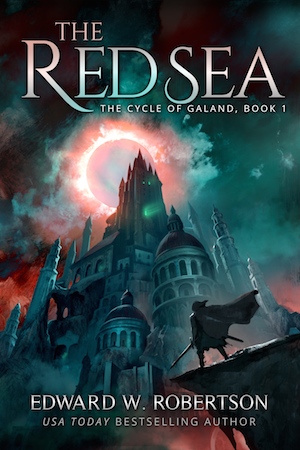Big news today: next month, Amazon is rolling out the Kindle MatchBook program.
What is MatchBook? Well, why don’t I just lazily quote their FAQ:
“The Kindle MatchBook program offers customers who purchase, or have previously purchased, a print book from Amazon.com the option to purchase the Kindle version of that title for $2.99 or less. If you have a print version of your title and enroll the Kindle version in Kindle MatchBook you can earn a royalty from Kindle Direct Publishing (KDP) based on the Promotional List Price (choose from $2.99, $1.99, $0.99, or free) for any Kindle MatchBook sale.”
Boiling it down for readers: buy the paperback, and you can buy the ebook of enrolled titles at a steep discount–even for free, in some cases.
Boiled down for writers: if you’ve got a paperback version of your book, and someone buys it, you can choose to offer them a discount on the ebook as well.
I don’t see a single objectionable part of this program, but since it involves money and ebooks, I’m sure someone will be up in arms somewhere. In that case, I offer two ways to look at this. First, look at it from a reader’s perspective. If you bought a physical copy of a book, and the publisher offered to bundle it with the ebook version for an additional $0-2.99, wouldn’t you be high fiving them so fast the resulting wind would blow open the pages of your new paperback?
For readers, this is awesome.
The second way to approach this is via analogy. If you buy a CD, you have effectively bought both a physical and a digital version of that album; anyone with a computer can convert a physical CD into mp3s. You’re paying for a work, not for a format.
Is there a problem with that? No? Then what’s the problem with offering an equivalent service with books and ebooks? The only difference I can see is that consumers can rip their own mp3s, but they can’t rip an ebook from a paperback. Publishers have to convert the manuscript into the digital format for consumers.
But let’s be real. Unless you’re formatting a book with all kinds of fancy non-text elements, ebook formatting is not hard. I literally formatted a full novel yesterday, with discrete versions for Amazon, Kobo, and B&N. It took me about 90 minutes. And that included uploading times and a few rounds of tweaks, because I’m a caveman who writes in a non-Word word processor and who doesn’t use any automated formatting scripts. Formatting is a non-issue.
Meanwhile, you can still charge $0.99-2.99 for the bundled ebook. If somebody’s already paying $8-25 for a physical copy, I think $1-3 enters the impulse purchase zone for a great many people. What section of the market regularly pays full price for both formats? I hate using anecdotes as evidence, but the only time I’ve bought the ebook version of a book I already own in hard copy is when that ebook has been listed at an extreme discount (like when Orbit slashed Consider Phlebas to $0.99 for a little while, or when one of Neal Stephenson’s books has been dropped to $1.99). If this causes many paperback purchasers to spend $1-3 more on the ebook format, that’s far superior to the $0 they’d usually be spending.
Not to mention this may be a way to help entice paperback readers into reading more ebooks. Which might actually cause publishers to hesitate, heh.
And if they do, that’s just one more area where indies can offer similar quality for lesser cost to readers.
Anyway, enough defense of a program that’s brilliant on its face (and for all I know, I’m flailing at strawmen anyway). I love this as a reader and I love it as an author. I’ve already enrolled all my eligible books in the program. Right on, Amazon. Right on.






Leave a Reply